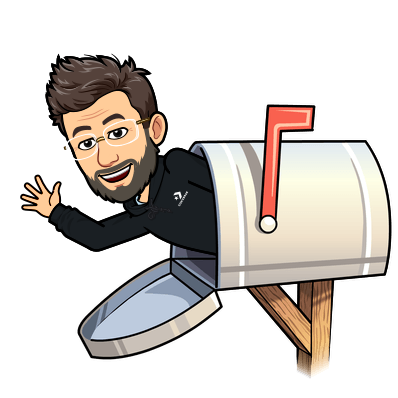Mindset
What's Your Story?
Posted on 16th April 2011. In the world of espionage they call it your “legend”. In drama, it's a character's “backstory”. In marketing we often call it a “persona”.
In the world of espionage they call it your “legend”. In drama, it's a character's “backstory”. In marketing we often call it a “persona”.
In essence, it's the stories about you, your history, your experiences which uniquely qualify you to do the things you claim you can do. The things that give credibility to your services.
If you're a an innovation consultant, perhaps you spent 10 years at Apple and know how the very best do it. If you're an IT outsourcer, perhaps you used to be the CIO of a major corporation and know just what CIOs need from outsourcing. If you're a leadership coach, perhaps you interviewed the 10 most prominent leaders in your sector and know what they do that makes them so effective.
In my post on Marketing Half-Truths I showed how important this backstory can be. How it can give you significant credibility and also make you more interesting to clients.
I'm not talking here just about your achievements or your CV. Just a list of stuff you've done is neither interesting nor memorable.
What I'm talking about is crafting a coherent and memorable story that brings a logical underpinning to your capabilities and services.
It works best if you can sum it up in one sentence. “<your name> can <do what you say you can do> because <your story which justifies it>”.
In my case, I can help consultants and coaches get more clients because I've done it myself – despite being far from a natural at business development.
Here are some others from my Authority Marketing podcast interviews:
Drayton Bird can do world-class copywriting because he's an obsessive student of the art and learned personally from the very best.
Greg Alexander can use benchmarking to improve sales performance because he's an ex-Sales VP who teamed up with a benchmarking geek to devise a method that really measures what drives sales success.
Tom Searcy can help small businesses beat their bigger competitors to land huge clients because he's done it time and time again himself and has turned his experience into a practical methodology.
In each of the cases, the history of the person lends credibility to what they say they can do.
Knowing their backstory, I'm going to hire each of them ahead of someone who claims to be able to do the same, but doesn't have the same credibility in their story.
So do you have a credible backstory like this?
I'm not suggesting you make one up if you don't. But what you can do is identify and focus on the elements in your own history which support your claims. This could be jobs you've done, experiences you've had, something you've studied, or a quirk of your personality.
What sort of stories typically work well?
In no particular order, here's a list of types of backstory which can work well. See if your experience can fit into any of these templates:
- “I've done what you want to do”. This is a particularly powerful one. If you've done yourself what you're advising others to do (turned around a company, led a large organisation, doubled the sales of your business) then it makes sense to people that your advice will be good.
- “The researcher“. You may not have done yourself what you're advising people about – but you've studied those who have and become an expert on what drives success based on multiple examples.
- “The power behind the throne”. You were the guy behind the scenes advising, guiding and coaching others who've become big successes in the way your potential clients want to. Who did Roger Federer turn to recently to revitalise his career? Paul Annacone, the guy who helped Pete Sampras to nine of his Grand Slam victories.
- “The pioneer”. You've the guy who's come up with new ideas in your field. A new theory of leadership. The first application of benchmarking to HR or whatever.
- “The man on a mission”. You're dedicated to a cause – reducing waste in the public sector, democratising leadership.
- “The champion”. This time you're dedicated to a particular type of business. Like Tom Searcy, for example, who champions small companies in their fight to win big deals against their big competitors.
- “The safe pair of hands”. You want someone to manage a big IT project? This guy's done dozens. He knows every trick in the book and lives and breathes these projects.
- “The engineer”. The guy who sees everything as a puzzle to be solved. Incredibly curious and obsessive about cracking every problem he gets given. You have a tough marketing challenge? Give it to him and he'll figure it out.
And, of course, there could be a whole bunch more.
In every case, something about the character or the experience of the persona gives credibility to why you should hire them. People can understand simple stereotypes like this. The can mentally file them and associate them with good things.
And if they're playing their role well, their behaviour and the stories they tell should be congruent with that stereotype.
So what's your story?
———-
PS For more information on using personas as part of business development, check out Dan Kennedy's work on Personality in Copy, and Jay Abraham and Rich Schefren on Maven Marketing.
Image by Nicolas Nova

